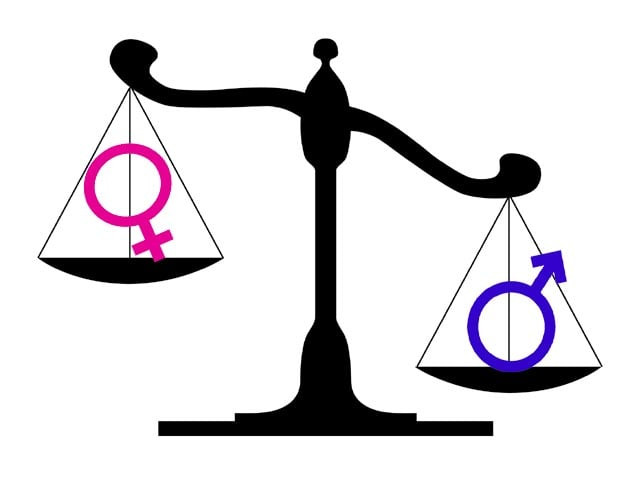‘Shift in attitudes, implementation of laws to pave way for women welfare’
Participants believe political empowerment is necessary to ensure legal empowerment.

"Male family members won’t dare torture women if they are given protection and served with speedy justice," Participant Abdullah Langha. PHOTO: FILE
People from different walks of life, including social activists, lawyers, academicians and women rights activists, have urged the government to implement laws to ensure zero tolerance against gender-based violence in the society.
At a roundtable meeting arranged by alMehran Rural Development Organisation (AMRDO) on Tuesday, different stakeholders criticised the attitude of men towards women at workplaces. They also regretted the different incidences of violence against women, including honour killings, and the behaviour of law-enforcement agencies towards victims. “A man considers a woman his property. She is unsafe socially. She feels insecure wherever she goes,” said Safia Haider. Flaying the stereotypes, she said that only women were expected to follow all norms and values. “Women in Pakistan are the biggest victims of the ghairat of men. The patriarchal society has restricted her freedom.”

Advocate Hamidullah Abbasi said that legislation alone won’t bring a visible change until the basic laws were reformed. He said that the people in the rural areas needed to change the way they perceive their women. “A killer is showered with respect in jail when he takes the life of his sister, wife, mother or daughter in the name of honour. The society considers it right.”
Abbasi said that there were laws in developed countries to hail women rights, but developing countries still needed time to understand the significance of women empowerment. “Violence knows no limit. It’s not good for civilised societies to endure gender-based violence,” said Rafique Wassan, a lecturer at the University of Sindh. “Educated people, members of civil society and the media should play an important role to spread the significance of according women their due respect,” Wassan urged.
A participant, Abdullah Langha, was of the view that the society lacked safe shelters for women affected by violence. “Where should they be kept if they resist aggression? Male family members won’t dare torture them if women are given protection and served with speedy justice,” he added.

The participants believed that violence in the society was increasing by the day. They said that the majority of people were unaware that laws against violence existed. Violence was interlinked with the basic economic issues, such as poverty, unemployment and illiteracy. The participants stressed the need of politically empowering women to ensure their legal empowerment.
It was also highlighted that the cases of violence against women were not accurately reported due to social taboos. “The society needs a rapid change. Violence mainly occurs in areas where hunger and poverty has deep roots,” Aaliya Bakhshan said.
Asif Bajeer of the AMRDO said that violence in Larkana was high. Bajeer said that advocacy and awareness among women in affected areas won’t bring change if laws were not implemented in letter and spirit. “It’s the prime responsibility of the state to implement the laws,” he urged.
The speakers in the meeting also lauded the courageous role of working women. Aurat Foundation’s advocate Robina Brohi appreciated the Sindh government’s role for legislation. “We at least have laws now. A time will come when they will be implemented and the people will know their importance,” she added.
Published in The Express Tribune, July 18th, 2013.


















COMMENTS
Comments are moderated and generally will be posted if they are on-topic and not abusive.
For more information, please see our Comments FAQ